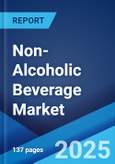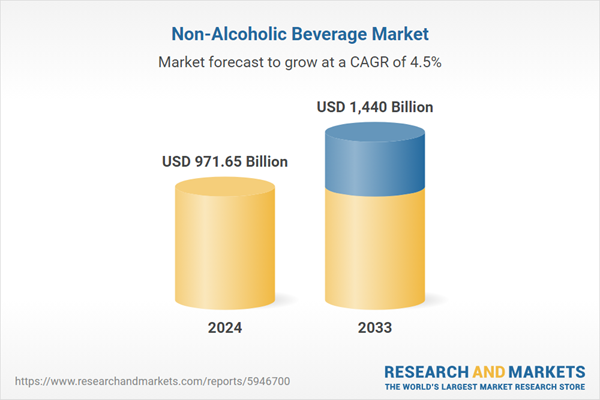Non-alcoholic beverages, also known as mocktails or alcohol-free drinks, have gained popularity in recent years as healthy and refreshing alternatives to alcoholic beverages. They are made using various methods, including mixing juices, syrups, sodas, and other non-alcoholic ingredients, which are then garnished with fruits, herbs, and spices to create a visually appealing and delicious drink. One of the main benefits of non-alcoholic beverages is their nutritional value. These drinks are rich in vitamins, minerals, and antioxidants, as they are typically made using fresh fruit and vegetable juices.
When compared to alcoholic beverages, non-alcoholic beverages do not contain alcohol, meaning they are suitable for individuals that do not consume alcohol due to health, religious, or personal reasons. In addition to this, non-alcoholic beverages do not have the potential negative effects of alcohol, such as intoxication, impaired judgment, and increased health risks associated with excessive alcohol consumption. They are also lower in calories than alcoholic beverages, making them a healthier choice. Currently, there are various product variants available, including fruit punches, iced teas, smoothies, mocktails, and homemade lemonades.
Non-Alcoholic Beverage Market Trends:
The global non-alcoholic beverage market is driven by the increasing consumer health awareness. This is further bolstered by the growing demand for healthier beverage options, such as natural fruit juices, kombucha, and functional drinks enriched with vitamins and minerals. Furthermore, the rise of digital media and social media influencers has played a significant role in creating trends and driving consumer preferences towards unique and exotic non-alcoholic beverages, such as craft sodas, specialty teas, and artisanal coffee drinks, which, in turn, is boosting the market growth.Moreover, the growing trend of sustainability and eco-consciousness and the escalating focus on personalized nutrition and customization are bolstering the market growth. Apart from this, the expansion of distribution channels, such as e-commerce and direct-to-consumer sales, and the growing awareness of the impact of sugar and artificial ingredients on health are driving the market growth.
In line with this, key market manufacturers are introducing low-sugar, natural, and organic non-alcoholic beverages, such as stevia-sweetened sodas, organic fruit juices, and natural energy drinks, to increase their consumer base, which is creating a positive outlook for the market. The increasing demand for single-serve, portable, and ready-to-drink (RTD) non-alcoholic beverages, such as cold-brew coffees, canned teas, and bottled smoothies, and inflating consumer expenditure power are fueling the market growth.
Key Market Segmentation:
This report provides an analysis of the key trends in each segment of the global non-alcoholic beverage market, along with forecast at the global, regional, and country levels from 2025-2033. The market has been categorized based on product type, packaging type, and distribution channel.Product Type Insights:
- Carbonated Soft Drinks
- Juices
- Bottled Water
- Sports and Energy Drinks
- RTD Tea and Coffee
- Others
Packaging Type Insights:
- Bottles
- Cans
- Cartons
- Others
Distribution Channel Insights:
- Retail
- Food Service
- Supermarkets and Hypermarkets
- Online Stores
- Others
Regional Insights:
- North America
- United States
- Canada
- Asia-Pacific
- China
- Japan
- India
- South Korea
- Australia
- Indonesia
- Others
- Europe
- Germany
- France
- United Kingdom
- Italy
- Spain
- Russia
- Others
- Latin America
- Brazil
- Mexico
- Others
- Middle East and Africa
Competitive Landscape:
The report has also provided a comprehensive analysis of the competitive landscape in the global non-alcoholic beverage market. Competitive analysis such as market structure, market share by key players, player positioning, top winning strategies, competitive dashboard, and company evaluation quadrant has been covered in the report. Also, detailed profiles of all major companies have been provided.Some of the companies covered include Arizona Beverage Company, Asahi Group Holdings Ltd., Danone S.A., Keurig Dr Pepper Inc., Nestlé S.A., Parle Agro Pvt. Ltd., PepsiCo Inc., Primo Water Corporation, Red Bull GmbH, Suja Life LLC, Suntory Beverage & Food Limited and The Coca-Cola Company. Kindly note that this only represents a partial list of companies, and the complete list has been provided in the report.
Key Questions Answered in This Report:
- How big is the non-alcoholic beverage market?
- What is the future outlook of non-alcoholic beverage market?
- What are the key factors driving the non-alcoholic beverage market?
- Which region accounts for the largest non-alcoholic beverage market share?
- Which are the leading companies in the global non-alcoholic beverage market?
Table of Contents
Companies Mentioned
- Arizona Beverage Company
- Asahi Group Holdings Ltd.
- Danone S.A.
- Keurig Dr Pepper Inc.
- Nestlé S.A.
- Parle Agro Pvt. Ltd.
- PepsiCo Inc.
- Primo Water Corporation
- Red Bull GmbH
- Suja Life LLC
- Suntory Beverage & Food Limited
- The Coca-Cola Company
Table Information
| Report Attribute | Details |
|---|---|
| No. of Pages | 137 |
| Published | April 2025 |
| Forecast Period | 2024 - 2033 |
| Estimated Market Value ( USD | $ 971.65 Billion |
| Forecasted Market Value ( USD | $ 1440 Billion |
| Compound Annual Growth Rate | 4.5% |
| Regions Covered | Global |
| No. of Companies Mentioned | 12 |









